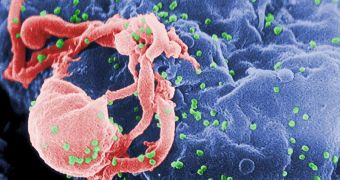Researchers of the University of Texas Medical School in Houston have recently announced that they might have found a way to fight off the human immunodeficiency virus for good by altering the part of its genetic code than never mutates. So far the laboratory tests indicate that the technique is effective, although until it is tested on humans it cannot be implemented as a possible cure. But even if it works, it could take at least five years before it may be able to treat people infected with HIV.
"The virus is truly complex and has many tricks up its sleeve. We've discovered the weak spot of HIV. The virus needs at least one constant region, and that is the essence of calling it the Achilles heel," states Dr. Sudhir Paul of the University of Texas Medical School. He also says that people could take advantage of this weakness with the help of a monoclonal antibody known as abzyme, which is naturally produced in the human body. "What we already have in our hand are the abzymes that we could be infusing into the human subjects with HIV infection, essentially to move the virus," he added.
When interacting with abzymes, the HIV virus is basically rendered harmless and could theoretically be controlled in order to reduce the effects of the disease and the risk of infecting other people. The next step, Dr. Sudhir said, is to start human trials, although the much needed funding for this crucial step has so far failed to appear.
"Clinical trials are very expensive. That is the worry of the researcher. This is what nightmares are made of - that after 30 years of work, you find it doesn't work. This is the holy grail of HIV research, to develop a preventative vaccine," Dr. Sudhir said. "If we can get the viral loads down to a manageable level, that will preclude the need for these conventional drugs," added Dr. Miguel Escobar, part of Dr. Sudhir's research team.

 14 DAY TRIAL //
14 DAY TRIAL //